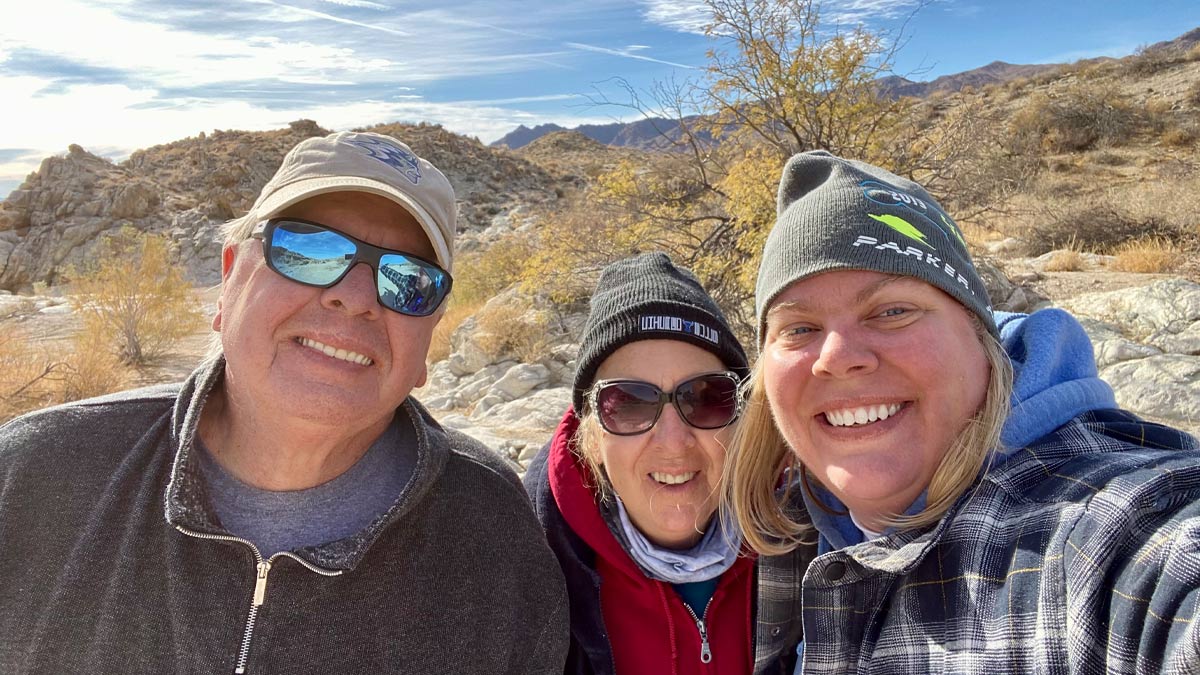Becoming more open about finances has helped the family avoid falling victim again
NORTHAMPTON, MA / ACCESSWIRE / June 12, 2024 / U.S. Bank

Gary, left, Cindy and Leslie Wilbur know all too well how convincing scammers can be. The Wilburs have created an open dialogue about finances and regularly check in to make sure they don't fall victim to the latest scams.
Originally published on U.S. Bank company blog
In today's digital age, financial fraud is an unfortunate reality that many people face, especially the elderly. In fact, the FBI reported in its 2023 Elder Fraud Annual Report that total losses by those over the age of 60 topped $3.4 billion, an almost 11% increase in reported losses from 2022.
Leslie Wilbur, a risk and control self-assessment specialist at U.S. Bank, said she knows this reality all too well. Her parents, Gary and Cindy, have both experienced attempted elder fraud scams.
The unexpected call
One day, Gary Wilbur received a call from an individual claiming to be from his utility company. The caller said Gary was late on his bill and requested immediate payment over the phone. Gary later said the individual he spoke with was very convincing - and he and Cindy had recently moved so he thought it was possible that there were some final fees they needed to pay.
Ready to rectify the situation, Gary was about to provide his credit card information when Cindy intervened.
Cindy said her gut told her that something didn't feel right.
"I knew we were current on our bills," she said, "and when we were hesitant to provide our card number, the caller threatened to have our electricity turned off in five minutes and became aggressive. That is when I had a feeling something was not right. So, we hung up and called Leslie to get her opinion."
Leslie agreed that something was fishy and that this was a scam. She worked with her parents to notify their bank, the attorney general and the Better Business Bureau of this scam. And, when she called back the number a few days later, it was using a different utility company name.
Gary said he's lucky they realized something was off.
"If not for Cindy walking into the room, I would have provided my credit card information," he said. "The person on the phone was very convincing."
The deceptive search result
Unfortunately, this was not the end of their encounters with fraudsters.
Cindy fell victim to a scam when she wanted to check on an Amazon order she'd recently made. She googled Amazon's phone number, and a fake number popped up as the first result.
Believing it to be accurate, she provided the representative a lot of personal information when requested to so he could "look up her order."
During this conversation, the scammer had also convinced her that he needed to connect to her computer remotely to further assist her.
The next day, Cindy noticed small amounts of money being deducted from her bank account and called Leslie. They realized this was another scam, and immediately connected with U.S. Bank to close their accounts, and then went on to report it to all three credit bureaus to put a freeze on her credit.
"I couldn't believe I fell for this scam," Cindy said. "But through both experiences, we learned some valuable lessons that will help protect us in the future. We're both a lot more cautious when we receive phone calls from people we don't know, and we don't share personal information until we are sure of who we are talking to."
The power of family
In both instances, both Gary and Cindy thought to inform their daughter, Leslie. With her help, they were able to identify the scams and report them to the appropriate entities.
"For me, talking about finances used to be taboo," Gary said. "But, after these experiences, not only are we having open conversations with our children, but we're also telling our friends and family about our experiences so they know what to avoid."
Leslie said she also makes a point to check in with her parents regularly and makes sure to tell them about new scams she's hearing about on the news.
"Throughout both experiences, I learned that it's important to talk about finances with your parents - and to create a space where they are comfortable to answer questions," Leslie said. "These open conversations have really helped them realize that they can trust me and come to me for advice when they need it. I think my parents were initially hesitant to tell me anything that was going wrong because they were always the ones protecting us. But now it's my turn to help protect them."
Tools to help prevent fraud
Technology can enable a family member or friend to help you monitor your accounts for suspicious activity.
U.S. Bank offers Shared Access, which lets you grant trusted individuals limited mobile and online access to your bank accounts.
It allows them to view some basic account activity to help monitor your accounts for unusual transactions and potentially stop fraud before it happens.
Granting someone Shared Access to your accounts doesn't give them full rights to your accounts, like adding a signer would, but does allow things like view-only access, which can be a tool to help stop fraud.
You can enroll in Shared Access from your U.S. Bank digital account and, as always, you can speak to someone from your local branch to get assistance.
Account alerts can be another way to spot suspicious activity. Many banks offer real-time text or email alerts about transactions in your account.
Learn more about common types of scams and how to avoid them.
Read five tips for seniors to stay a step ahead of schemers.
View additional multimedia and more ESG storytelling from U.S. Bank on 3blmedia.com.
Contact Info:
Spokesperson: U.S. Bank
Website: https://www.3blmedia.com/profiles/us-bank
Email: info@3blmedia.com
SOURCE: U.S. Bank
View the original
press release on accesswire.com
